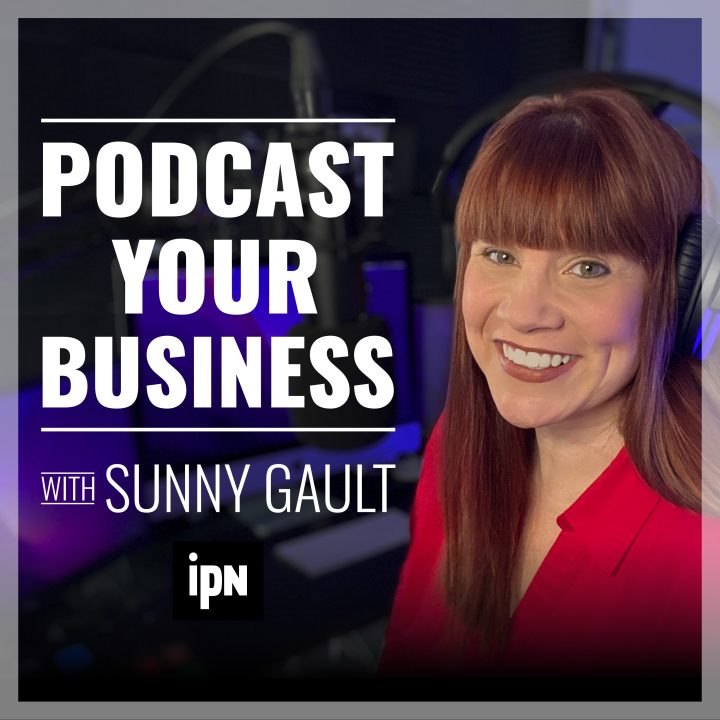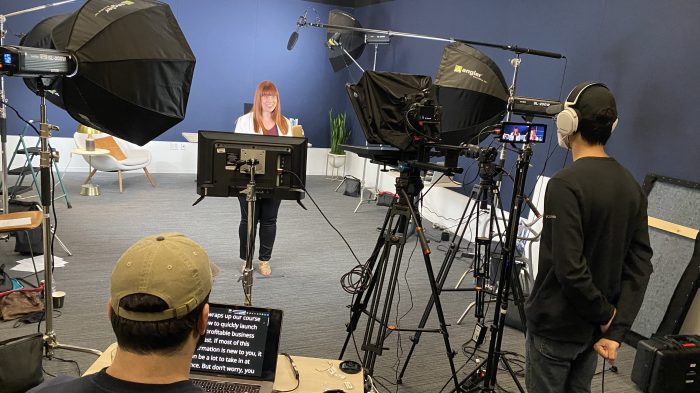
If you’ve ever wondered, “Who am I to host a podcast?” — you’re not alone.
That feeling of self-doubt, even in the face of progress or positive feedback, is a classic sign of imposter syndrome. It’s that inner voice that tells you you’re not qualified enough, not experienced enough, or simply not “legit” enough to be doing what you’re doing — even when all signs point to the opposite.
And for podcasters, it’s surprisingly common.
What is Imposter Syndrome?
Imposter syndrome is a psychological pattern where people doubt their skills or accomplishments and have a persistent fear of being “found out” as a fraud — even when there’s plenty of proof they’re doing just fine.
You might find yourself thinking:
- “I don’t have a background in media. Why would anyone listen to me?”
- “There are so many amazing podcasts out there. Mine doesn’t measure up.”
- “I just got lucky with that guest or that episode.”
These thoughts aren’t facts — they’re fear in disguise.
How to Tell If You’re Experiencing Imposter Syndrome
If you’re not sure whether you’re dealing with imposter syndrome, here are a few common signs:
- You delay publishing episodes, even though you have a content calendar, because they don’t feel “good enough.”
- You downplay your wins — like downloads, listener feedback, or guest interviews.
- You avoid promoting your podcast because you’re afraid of judgment.
- You feel like you’re “faking it,” even though you’re putting in real work.
Here’s the good news: imposter syndrome doesn’t mean you’re failing — it means you care.
It means you’re invested in doing your best, and that matters. The key is learning how to move forward even when that self-doubt shows up — and that’s exactly what we’ll cover next.

How Imposter Syndrome is Holding You Back
Let’s break down some of the most common ways imposter syndrome holds podcasters back:
- Procrastination That Looks Like “Planning”: You might call it “strategizing,” “researching,” or “waiting until it’s perfect” — but often, it’s just fear in disguise. Imposter syndrome often convinces you that you’re not ready. So instead of publishing that first (or next) episode, you stall. You’re avoiding the vulnerability of putting your voice out there — just in case someone doesn’t like it.
- Perfectionism That Slows You Down: When you’re worried about being “exposed” as not good enough, perfectionism kicks in as a shield. You might over-edit your episodes, script every word, or spend days trying to get your sound just right. But here’s the truth: perfection isn’t relatable — progress is. The more you try to polish every detail, the more you delay building momentum and connection with your audience.
- Avoiding Visibility and Self-Promotion: Let’s be honest, promoting your podcast can feel awkward — especially if you’re already doubting your credibility. Instead of putting your episodes out there with confidence, you keep them tucked away — hoping people will somehow find them on their own. If your show is valuable (and it is), people need to know it exists. Holding back only limits your reach and growth.
- Playing Small with Your Content: When imposter syndrome is in the driver’s seat, you might avoid certain topics, hide your unique style, or downplay your opinions — just in case you’re “wrong” or someone disagrees. But your unique voice, perspective, and experience are exactly what make your podcast stand out. Holding back out of fear means your message never gets the chance to fully connect with the people who need it.
9 Tips to Overcome Imposter Syndrome
Here are 9 practical, mindset-shifting tips to help you stop second-guessing yourself and start showing up with confidence behind the mic.
- Embrace “Beginner Energy”: You don’t need to be an expert to offer value. In fact, being a beginner can be a superpower — it allows you to connect with your audience in a more relatable, authentic way. Share your learning process on air. Let your listeners grow alongside you. It builds trust and confidence.
- Talk to One Person, Not the Crowd: Trying to impress a large, faceless audience can feel overwhelming. Instead, picture one specific listener — someone who genuinely needs what you’re saying. Create an audience avatar. Give them a name, a background, and a goal. Speak directly to them in every episode.
- Reframe the Inner Critic: That voice in your head? It’s not the truth — it’s just fear wearing a clever disguise. Learn to question those doubts instead of accepting them as facts. When a negative thought pops up (e.g., “This episode isn’t good enough”), counter it with evidence. What have listeners said? How far have you come?
- Focus on Progress, Not Perfection: Perfection is the enemy of momentum. Confidence comes from doing — not from waiting until everything is flawless. Set a “publish anyway” rule. If your episode is 80% solid, ship it. You’ll learn more about improving your content quality by releasing than by endlessly tweaking.
- Celebrate Small Wins Loudly: Every milestone matters — your first listener, your tenth episode, your first piece of feedback. Recognizing progress builds resilience. Start a “Podcast Wins” doc. Add to it every time you receive a kind message, finish editing early, or hit a goal.
- Connect With Other Podcasters: Isolation fuels imposter syndrome. When you talk to other podcasters, you realize everyone has doubts — even the pros. Join a podcasting community (Facebook group, Slack channel, mastermind). Ask questions. Share experiences. You’ll feel less alone and more empowered.
- Keep Learning — But Take Action Too: It’s easy to get stuck in research mode. Yes, learning is great. But real growth happens when you apply what you’ve learned. For every tutorial or podcasting tip you consume, take one small action. Learning should lead to doing.
- Ask for Feedback (From the Right People): Not all feedback is created equal. Seek advice from people who understand your goals — and who want to help you grow, not tear you down. Choose 2–3 trusted listeners or peers. Ask them a specific question like, “What part of this episode felt strongest?” or “Was anything unclear?”
- Remember Why You Started: When self-doubt creeps in, go back to your mission. Why did you start podcasting in the first place? What message do you want to share? Write your “why” on a sticky note or notecard. Keep it visible when you record. It’s a powerful reminder that your voice matters.
Conclusion
Imposter syndrome is something almost every podcaster faces at some point — even the ones with thousands of listeners and major sponsorships. The difference isn’t that they never felt self-doubt — it’s that they didn’t let it stop them. So whether you’re about to launch your very first episode or you’ve been podcasting for a while and still feel that twinge of self-doubt — know this: You’re ready. You’re capable. And you’ve got this.









